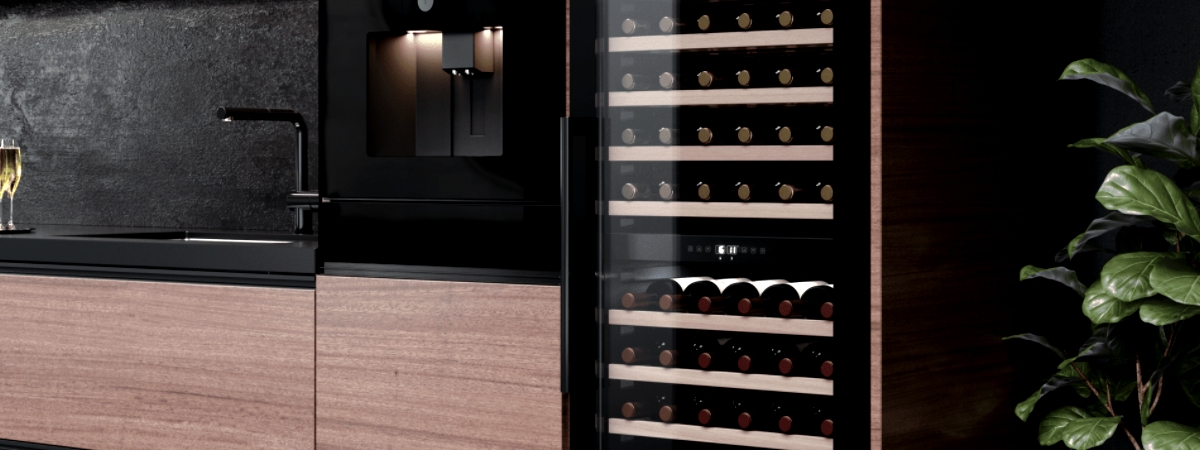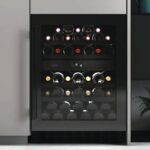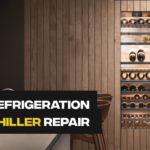Dometic Wine Cooler Circuit Breaker Tripping
Post Date: June 25, 2024

Circuit breaker tripping in your Dometic Wine Cooler can occur due to various reasons related to electrical issues or overload conditions. One common cause is electrical overload. If your wine cooler is plugged into a circuit that already has a heavy load from other appliances, or if the wine cooler itself draws too much current due to a fault, it can trip the circuit breaker to prevent overheating or damage.
Another potential cause is a faulty compressor. The compressor in your wine cooler may malfunction intermittently, drawing excessive current during operation. This sudden surge in power consumption can trip the circuit breaker, especially if it happens repeatedly.
Short circuits within the wine cooler’s wiring or internal components can also lead to circuit breaker tripping. A short circuit occurs when there is an unintended path for electricity due to damaged wiring or faulty components, prompting the breaker to trip as a safety precaution.
Issues such as faulty wiring or loose connections can contribute to intermittent electrical faults that cause the circuit breaker to trip. It’s essential to inspect the power cord of your wine cooler for any signs of damage, such as fraying or cuts, and ensure the outlet where it is plugged in is secure and in good condition.
DIY Solutions:
If your Dometic Wine Cooler is tripping the circuit breaker, here are detailed steps you can take to diagnose and potentially resolve the issue:
- Check Electrical Load: Assess the electrical load on the circuit where the wine cooler is plugged in. Unplug other appliances from the same circuit to reduce the load and see if the breaker continues to trip.
- Inspect Power Cord and Outlet: Examine the power cord of the wine cooler for any visible damage. Look for signs of wear, cuts, or fraying. Also, inspect the outlet itself to ensure it is securely connected and functioning correctly.
- Test with Different Outlet: Plug the wine cooler into a different outlet on a separate circuit. This helps determine if the issue is specific to the outlet or circuit where it was previously plugged in.
- Clean Condenser Coils: Dust and debris accumulation on the condenser coils can cause the compressor to overheat, leading to increased power consumption and potential circuit breaker tripping. Use a vacuum cleaner or a brush to clean the coils thoroughly.
- Check for Short Circuits: Inspect the internal wiring of the wine cooler for any signs of damage or wear. Ensure all connections are tight and secure to prevent short circuits that can trip the breaker.
- Adjust Temperature Settings: Lowering the temperature setting too much can cause the wine cooler to cycle more frequently, drawing more current. Adjust the temperature setting to a moderate level and monitor if the breaker continues to trip.
Preventive Measures:
To avoid future circuit breaker tripping with your Dometic Wine Cooler, consider implementing these preventive measures:
- Regular Maintenance: Schedule periodic maintenance checks with a qualified technician to inspect the electrical components of your wine cooler and ensure they are in good condition.
- Proper Placement: Position the wine cooler in a well-ventilated area away from direct sunlight and extreme temperatures. Adequate ventilation helps maintain optimal compressor operation and reduces the risk of electrical issues.
- Upgrade Electrical Wiring: If your home’s electrical wiring is outdated or insufficient for the wine cooler’s power requirements, consider upgrading to a higher capacity circuit. This ensures the wine cooler operates safely without overloading the circuit.
By following these detailed DIY solutions and adopting preventive measures, you can effectively troubleshoot and potentially resolve circuit breaker tripping issues with your Dometic Wine Cooler. If problems persist or if you are unsure about performing these steps, it’s advisable to seek assistance from a professional technician for further evaluation and repair.








